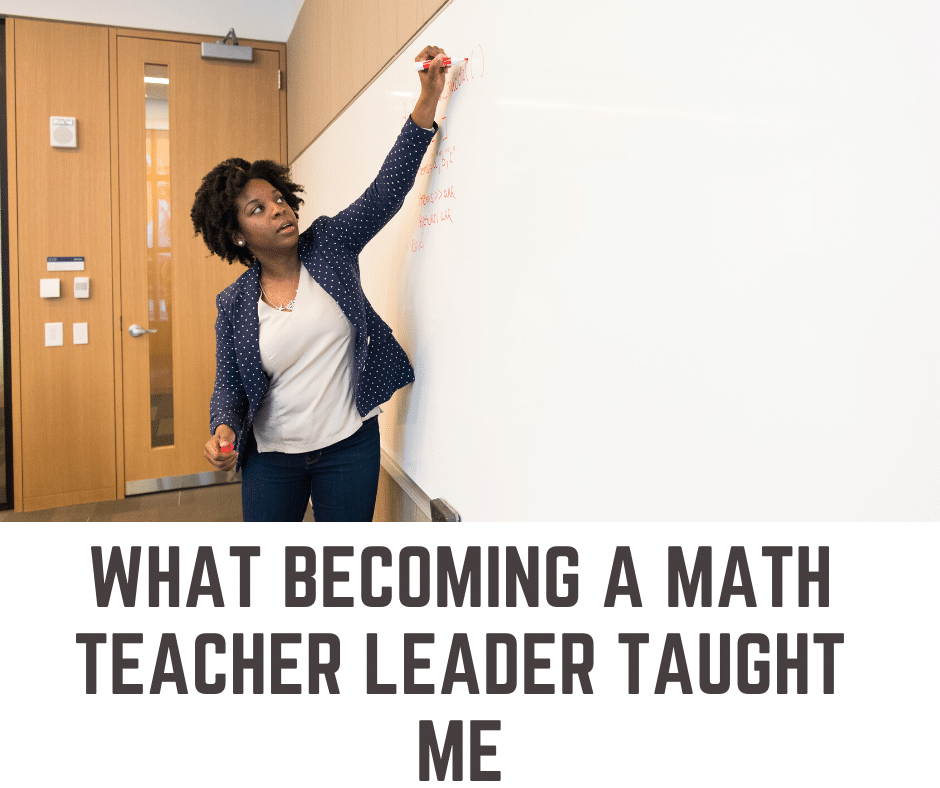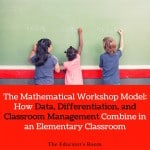Becoming a math teacher leader was never really on my radar. When I first started teaching math, I taught the way I was taught or how the textbook presented topics. Many of my students struggled with this method of teaching, so I looked for alternatives. When opportunities for professional development in math arose, I signed up for as many as I could. This started me on the path of becoming a leader.
Learning through Doing
The workshops I first attended were geared toward problem-solving rather than basic computation. Problem-solving allowed students to see how the math topic connected to the real world. For example, when learning how to find the area of a rectangle, students were encouraged to think about tiling a kitchen floor. This made the area formula for a rectangle or a square easier to understand.
Learning fractions is one of the most difficult topics for most students to understand. I learned that using pattern blocks can help students understand fractions. For example, you can have students place triangle shapes on top of a trapezoid. Students can visually understand what part of the whole one triangle represents. Paper folding and coloring certain areas is another way for students to actively visualize fractions.
As a teacher leader, I learned that while I embraced these activities, many teachers were still attached to the idea that all their students needed to learn was the formula or process to arrive at the correct answer.
Resisting the Use of Technology
Calculators are a great way for students to problem solve quickly. As I actually trained to become a teacher leader, I found that a large number of teachers who had calculators available to them would not allow students to use them. These teachers insisted that students had to work through problems by hand even if they were working on complex word problems.
Graphing calculators and computer programs that solve problems quickly allow students to visually check their own work. This type of technology is also helpful for struggling students. They can quickly see how a certain type of problem is solved. Sadly, I found that more than a few teachers considered using this type of technology to be cheating.
Math Instruction in Middle and High School Should Be More Concept Oriented
When working with middle and high school math teachers, I often got push back against the idea of doing activities that helped students better comprehend mathematical concepts.
Here’s an example of what I mean. My co-teacher leader and I had presented a lesson on using algebra tiles to teach students how to solve algebraic equations. We went through all of the steps including how the students were taught to translate each change of the tiles into algebraic writing. We had both used this technique with our classes, and it worked well.
Before concluding the session we asked if there were any questions. One question always came up. “When will they learn to solve the equations algebraically?” For us, the answer was simple. Most students give up the algebra tiles when they are ready. The second most frequently asked question came next. “How can they pass a standardized test if they can’t use the tiles?” Teach the students who are tile dependent on how to draw the tiles on paper as they solve the equation. They are allowed to use scratch paper on most standardized tests, so it isn’t an issue.
What I learned – Some teachers of higher-level math courses want to teach how to solve equations or use formulas without students fully understanding the concept.
Conclusion
We have learned so much about how the brain functions that I would like to see more math teachers embrace teaching math concepts rather than teaching students how to follow procedures to obtain the right answer. Problem-solving in the near future will be important for many of the emerging jobs. That makes it imperative for students to learn how to determine the best way to solve a problem.





